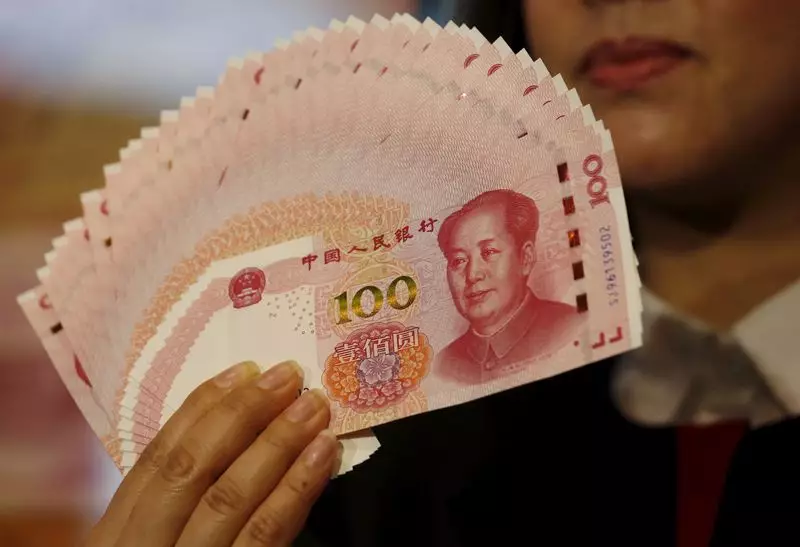In a nation where economic growth is increasingly sluggish, scams targeting financially distressed individuals are on the rise. China’s economy, once characterized by rapid expansion, is now grappling with the slowest growth in over a year. This downturn creates a fertile ground for unscrupulous schemes that exploit vulnerable populations, echoing the dark themes found in the popular South Korean series “Squid Game.” However, unlike the perilous stakes faced by the characters in the show, the stakes in China’s reality are often economic rather than physical—though the potential loss can still feel existential for many.
One of the more peculiar phenomena emerging from this economic climate is the popularity of “isolation challenges.” Through platforms like Douyin, these challenges promise substantial monetary rewards to participants who can adhere to a strict set of rules while sequestered in a room for extended periods. For example, participants may attempt to win prizes as high as 1 million yuan (approximately $140,000) by engaging in behaviors such as avoiding the use of electronic devices and refraining from smoking or alcohol consumption. However, as recent court cases reveal, the reality of these challenges often involves deceptive practices that leave players feeling cheated.
As desperate individuals cling to hope for financial relief, they often find themselves plied with rigid regulations that may feel less like challenges and more like a methodical path to disappointment. Surveillance cameras monitor their compliance, leading many to face penalties for minor infractions. Such was the case for a participant whose bid to claim a 250,000-yuan prize was quashed because he was accused of obscuring his face with a pillow. The transformative impact of these feelings of betrayal can linger long after the loss, underscoring the psychological toll of participating in such a desperate attempt for financial healing.
In light of increasing complaints about these isolation challenges, Chinese authorities have begun to take action. Courts, such as one in Shandong Province, have ruled in favor of participants who claimed that the rules were unfair and detrimental to public morals. Furthermore, regulatory bodies like the National Financial Regulatory Administration (NFRA) are on high alert for dubious debt relief schemes that are proliferating across the landscape.
The NFRA issued stark warnings against “debt intermediaries”—entities that promise assistance in restructuring debts or improving creditworthiness. These services can appear through various channels, from social media advertisements to flyers, but they are often riddled with hidden fees that can unfairly exploit desperate borrowers. Reports suggest that these intermediaries could charge as much as 12% of the loan’s total amount as a service fee, thereby compounding the financial burden on the very individuals they’re claiming to help.
The issue of household debt is central to understanding the exploitation present in these scenarios. As of November, China’s household loans amounted to a staggering 82.47 trillion yuan ($11.3 trillion). Many individuals within this vast cohort are experiencing stress as their financial circumstances deteriorate, leading them to seek out potentially dangerous solutions in the form of isolation challenges or dubious debt restructuring practices.
The challenges posed by soaring household debt are not solely economic; they also carry a psychological weight. The fear of failure to meet obligations can send individuals into a frenzy where they are willing to gamble on unproven and potentially fraudulent schemes, convinced that these challenges will offer a lifeline.
The interplay between economic downturns and the emergence of questionable financial schemes creates a complex backdrop for many individuals in China. While they may not face the literal life-and-death stakes seen in “Squid Game,” the emotional toll and financial consequences are significant. It is essential for individuals to remain vigilant and question the legitimacy of financial offers that seem too good to be true, understanding that in times of distress, the cunning will always seek to exploit vulnerability. As regulatory bodies tighten their grip on such schemes, a culture of caution and awareness must take root among the populace to prevent further exploitation in these tumultuous economic times.

